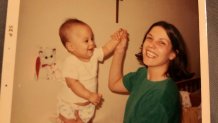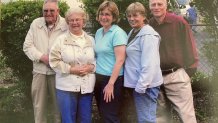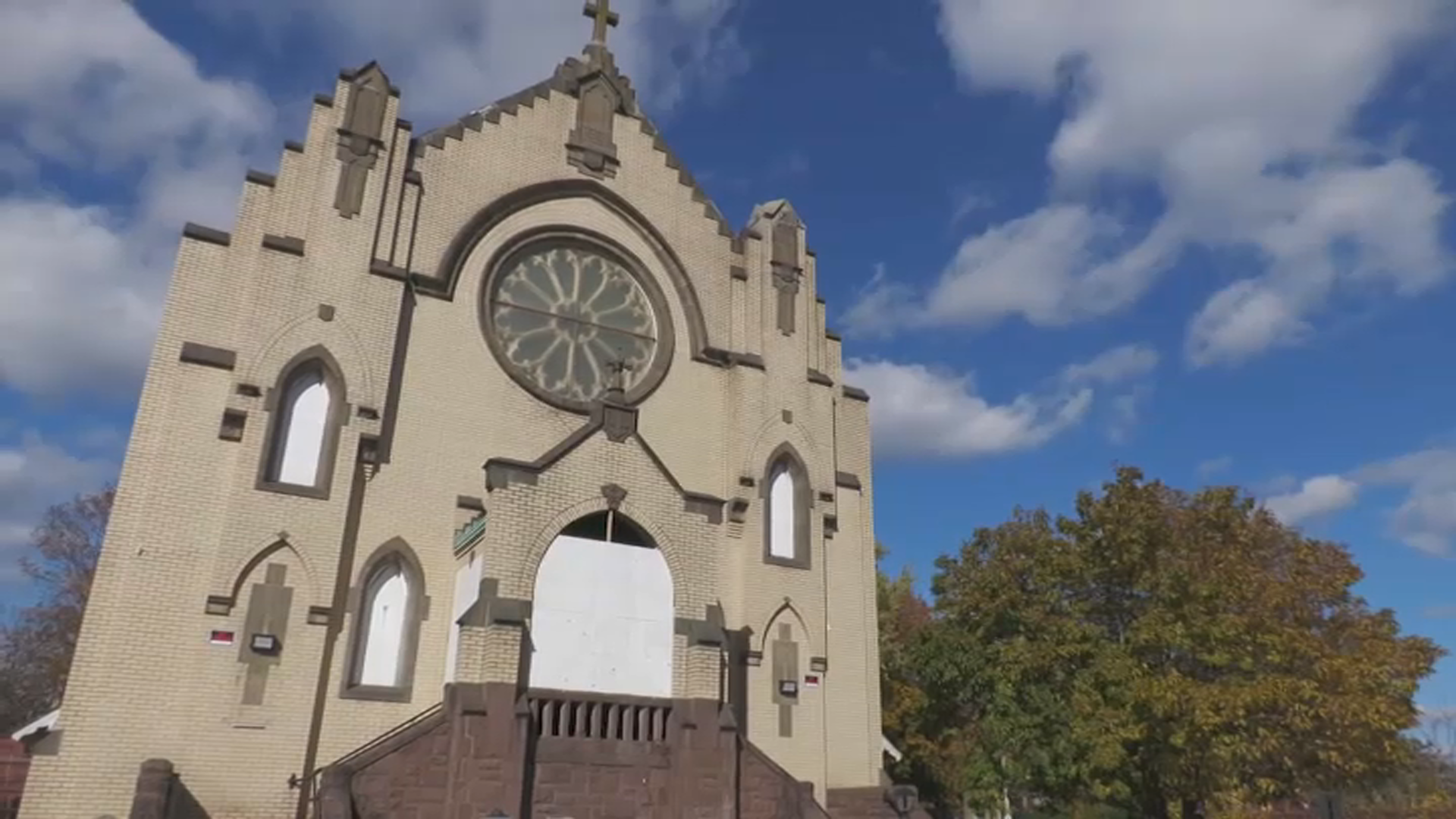Kathy Flaherty grew up in Newington knowing she had two parents who loved her. However, she also knew at an early age that there were two other people closely connected to her, her birth parents.
“I've always kind of wanted to look,” said Flaherty.
Adopted in 1969, she's among those Connecticut children born between 1944 and 1983 who are not allowed to see their original birth certificate. Instead she has what’s called an “amended birth certificate,” which names only her adopted parents.

“It's just unconstitutional, it's wrong. It needs to be corrected,” said Sen. Steve Cassano of Manchester.
In 1983, adoption forms changed, eliminating birth parents' rights to privacy. Cassano's bill gives all adult adoptees born prior to that access to their birth parents' identities.
"I fall in this weird little donut hole of people who can only get it if their birth parents are dead but you can't really prove that they're dead because you don't know who they are,” Flaherty explained. “The fact that there’s another document out there that actually has the accurate information in terms of who gave birth to me and that it’s locked in a vault and that I can’t have it unlike everyone else in the world.”
Local
For some, more important than meeting their parents, is unclocking important information like ancestry and medical history.
"Nothing about this bill forces anybody to have a relationship,” said Karen Caffrey, co-president of Access Connecticut Now and an adoptee herself.
Caffrey said she was reunited with her birth parents 40 years ago.
“It has so helped my health to know what kinds of risks run in my family, it’s allowed me to tell my doctors so they can target what kinds of tests and examinations to do for me,” she explained.
Of the 28 individuals and organizations that testified on House Bill 6105, Catholic Charities was the only one that voiced opposition.
"Obviously, people who want to remain anonymous don't do themselves any favor by coming forward in a public hearing,” pointed out Chris Healy, Executive Director of the Connecticut Catholic Conference. “To go down this path I think is very unfortunate, unfair to birth mothers out there who for their personal reasons wanted to have this privacy."
“You don’t forget you had a child,” countered Caffrey.
Eileen McQuade knows that all too well.
"The only thing to do would be to go away to maternity home, give the baby up for adoption, pretend it never happened, and I would go on with my life as if I never had a child,” she recalled.
That's just what the pregnant college freshman did in 1966 upon the urging of her parents and her church.
She married the birth father, Richard, two years later.
“Every year her birthday was enormously painful time for me. I'd wonder what she was doing and how she was doing,” said McQuade.
In 1997 she stopped wondering. A phone call reconnected the McQuades with their daughter.
“The walls came tumbling down. Life was never the same after that,” said McQuade.
Now, McQuade, who testified at a recent public hearing for the bill, said she's advocating for the law to change so that other families can be reunited.

"Reconnecting with my daughter enabled me to heal tremendously and I think that's an opportunity I want to afford as many people as possible,” she said.
The bill has passed out of committee several times since 2017 but died on the calendar each year.
Representative Tom O’Dea of New Canaan worried this bill would break a promise made to many mothers decades ago.
“I really believe the mother has a right to her anonymity and her right to privacy,” he said.
O’Dea noted that one constituent wrote him a letter asking him to vote against the bill, which he plans on doing.
“(She) was told that she would remain anonymous forever. So, I just believe we should honor that promise,” he said.
Cassano said DNA tests and social media make it easier for adoptees to find their birth parents and that the law needs to catch up the technological times we now live in.
“We’re very much concerned about the privacy but the reality is today you can go online,” said Cassano.
“That is not private. That is not confidential,” added Caffrey of DNA tests.
O’Dea countered that a birth parent’s right to privacy outweighs an adoptee’s right to their birth certificate.
“They were given the right to life by that mother who wishes to remain anonymous and they should honor that wish and they should thank that woman for not aborting them as a baby,” he said.”
Flaherty has tried just about every DNA test and geneology site out there.
“I’ll spit into a tube and find out what my ancestry is,” she said.
She said her friends working to put together a family tree, but so far she’s only connected with a cousin.
She said she reached out to Catholic Charities, which facilitated the adoption, and was told on her birthday, that her birth mother didn’t want a relationship.
“I don’t want contact with somebody who doesn’t want contact with me,” said Flaherty.
What Flaherty does want are her parents’ names, hoping that could unlock her medical history, something she’s asked about every time she sees her doctor.
“I usually have resorted to scrolling, I don’t know. I’m adopted. Please don’t give me this form again,” said Flaherty.
Healy said Catholic Charities provides medical records when requested while keeping the parents’ identities anonymous unless they are willing to lift the veil of secrecy.
Flaherty said the only medical records she received were the ones available at the time of her adoption. She said they list her maternal grandparent’s information, but points out that she’s missing her parent’s medical history from 1969 on.
“We do reach out to these birth mothers the best way we have with the resources that we have,” said Healy.
Healy acknowledged the difficulties of finding those who gave up their babies as teenagers in the 50s and 60s.
“People do move several times, they get married, they change their names, those types of things happen,” he said.
So for now, the search goes on.
“It's a sense of loss that you just really don't get over,” said Flaherty.



